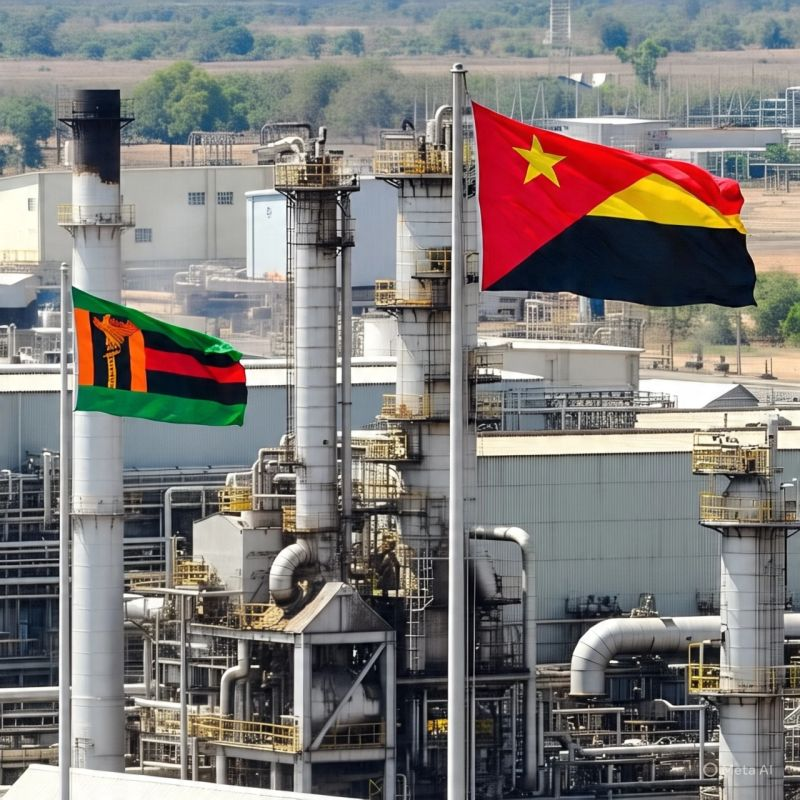In the quiet coastal province of Benguela, Angola, a major transformation is underway. What was once just a stretch of industrial coastline is now the epicenter of a strategic bet to change how Africa refines, distributes, and controls its own fuel supply.
In January 2023, as Zambia’s President Hakainde Hichilema toured Angola, one message stood out clearly: “It makes no sense to import fuel from halfway across the world,.”
The star of this shift? The Lobito/Benguela Refinery, a project that could power millions, reduce dependency, and deepen regional solidarity from Luanda to Lusaka.
Zambia has secured a 26% stake in Angola’s Benguela Oil Refinery under construction in Lobito, targeted for operation in 2026.

The Vision: Africa’s Own Fuel Factory
Angola’s new refinery, currently under construction in Lobito, is expected to produce up to 200,000 barrels of refined fuel per day when it becomes operational by 2026. That’s enough to supply Angola, Zambia, the DRC, and parts of southern Africa without a single drop needing to come from overseas.
And it’s not just about fuel.
The refinery is part of a larger cross-border strategy to process oil locally, power African industries, and finally reverse the dependence on imported, high-cost fuel, a problem that has long strained national budgets and destabilized markets.
Why It Matters: More Than a Refinery
The Benguela refinery is bigger than bricks and barrels. It symbolizes a new model of regional self-sufficiency.
The refinery is connected by the 1,739 km trans-Africa Lobito Corridor, linking Lobito’s port to the DRC and Zambia through rail and roads.
The Lobito refinery will process oil locally, adding value domestically, creating jobs on-site, and retaining oil revenue within Angola instead of exporting crude and importing finished products.
Instead of just paying others to refine oil, Zambia and fellow African nations are retaining value and control, reversing decades of dependency on foreign refineries.
What’s Next?
- 2026: Initial production begins. Zambia’s pipeline access instantly boosts access and share of fuel.
- Beyond Ownership: Equity holders like Zambia can influence production targets, pricing, and local industrial use.
- Replicable Model: This cross-country, equity-based approach could inspire similar regional partnerships, turning Africa into its own major refinery hub.
Zambia’s stake in Benguela is more than a business move; it’s a continental shift. It marks a transition from consumption to collaboration, from dependence to sovereignty. As the refinery and corridor come online, Africa moves closer to being not just a fuel market but an energy powerhouse of its own making.